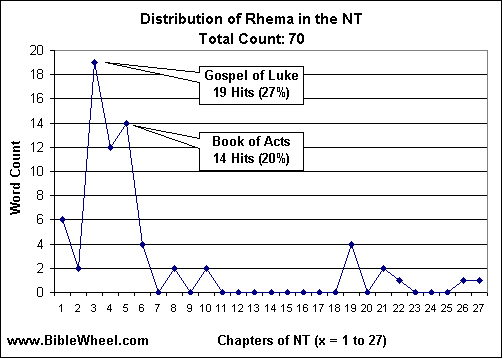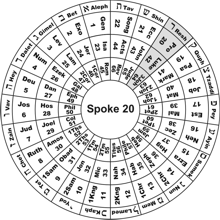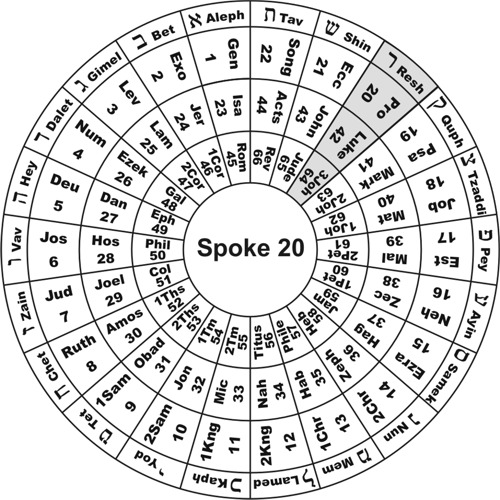Every Word of God
Every word of God is pure: he is a shield unto them that put their trust in
him. Add thou not unto his words, lest he reprove thee, and thou be found a liar.
Proverbs 30:5f (Spoke 20, Cycle 1)
And Jesus answered him, saying, It is written, That man shall not
live by bread alone, but by every word of God.
Luke 4:4 (Spoke 20, Cycle 2)
Searching all seven versions for ("every word of God") [Verify] yields exactly two hits in both
the KJV and NKJV, and
only one hit in each of the others. We have therefore this Spoke 20 KeyLink unique to the KJV textform:
 | KeyLink Phrase: 'Every Word of God' | Proverbs Luke Luke |
It is impossible to ignore the self-descriptive nature of this KeyLink. What is missing from all modern
versions? Nothing less than the KeyLink based on every word of God!
This is especially cogent in light of the
admonition - found in the immediate context! - not to add to (or, by implication, to alter or delete)
"his words."
The "natural" reason for this ommission
is that modern scholars who gave us the NU text
(the basis of all modern versions) have a preference for
a certain set of documents which happen to omit it.
If this were an isolated occurrence, we could
perhaps understand it as due to their intellectual rigour. But there are too many
KeyLinks with this same supernatual self-descriptive quality - found only in the KJV textform - to
ignore the implication that God has done something special in the KJV.
Two premier examples are Johannine Comma (cf.
Three Witness for 1 John 5.7) and the phrase
that ye may know and believe that
links Isaiah 43 and the Gospel of John.
The Greek word used in Luke 4.4,  (Rhema, Word) is the phonetic
reversal of the Hebrew used
in Proverbs 30.5 אמרה (Imrah, Word). This is a very simple metathesis which
mimics the reversal of
reading direction, suggesting the words are related. If we ignore the vowel eta in Rhema, and map the
remaining letters to their Hebrew equivalents we arrive at the fundametal Hebrew root
אמר (Omer, To speak).
It also appears that Rhema is a Resh KeyWord characteristic of Lukan authorship. Of the 70 occurrences of
this word in the New Testament, 33 are from the pen of Luke with 19 hits in his Gospel and 14 in Acts.
This accounts for 47% of the total, with the maximum being found in the Gospel of Luke on Spoke 20: (Rhema, Word) is the phonetic
reversal of the Hebrew used
in Proverbs 30.5 אמרה (Imrah, Word). This is a very simple metathesis which
mimics the reversal of
reading direction, suggesting the words are related. If we ignore the vowel eta in Rhema, and map the
remaining letters to their Hebrew equivalents we arrive at the fundametal Hebrew root
אמר (Omer, To speak).
It also appears that Rhema is a Resh KeyWord characteristic of Lukan authorship. Of the 70 occurrences of
this word in the New Testament, 33 are from the pen of Luke with 19 hits in his Gospel and 14 in Acts.
This accounts for 47% of the total, with the maximum being found in the Gospel of Luke on Spoke 20:

The only other book to approach this frequency is the Gospel of John which differs markedly from Luke in that
Rhema is not characteristic of John's other writings. This is contrasted with
the word Logos, for example, which marks most of
his writings, (cf. John 1.1, 1 John 1.1, Revelation 19.13).
| 


